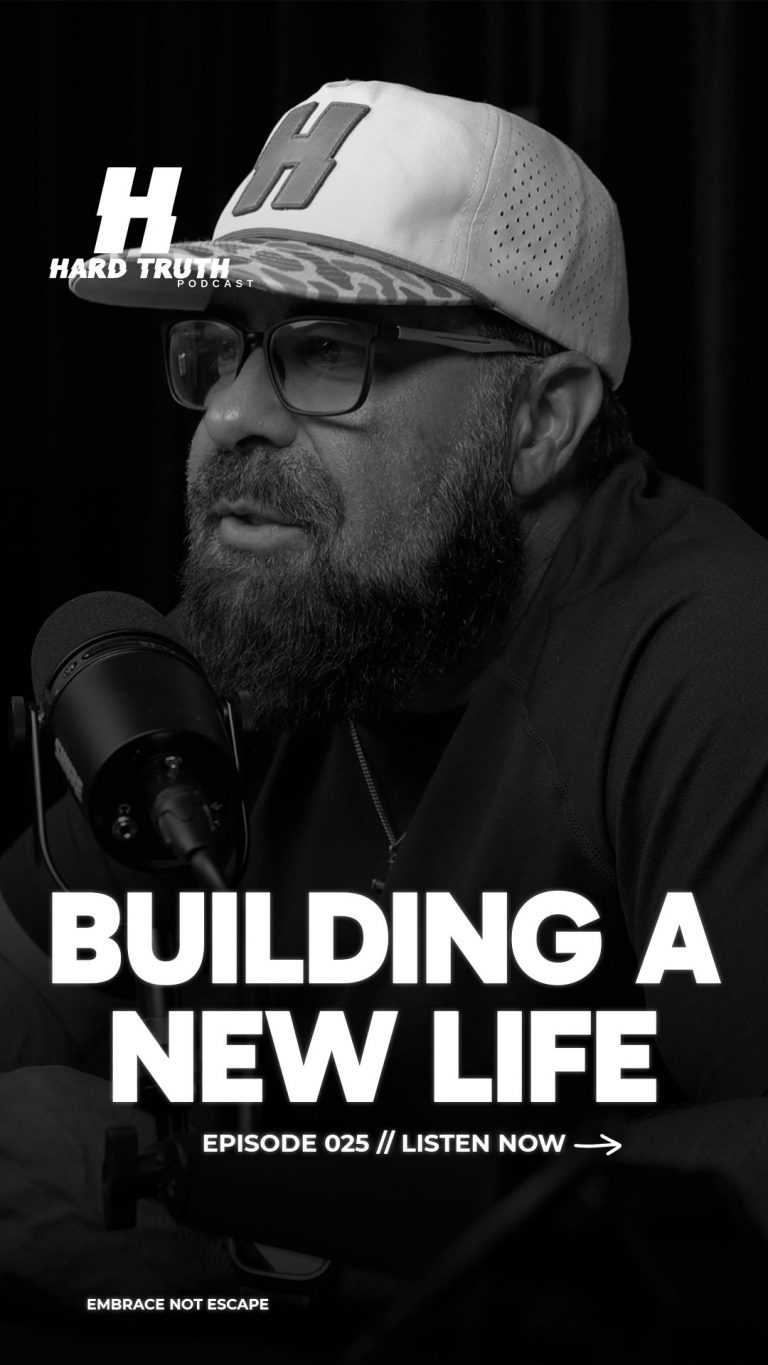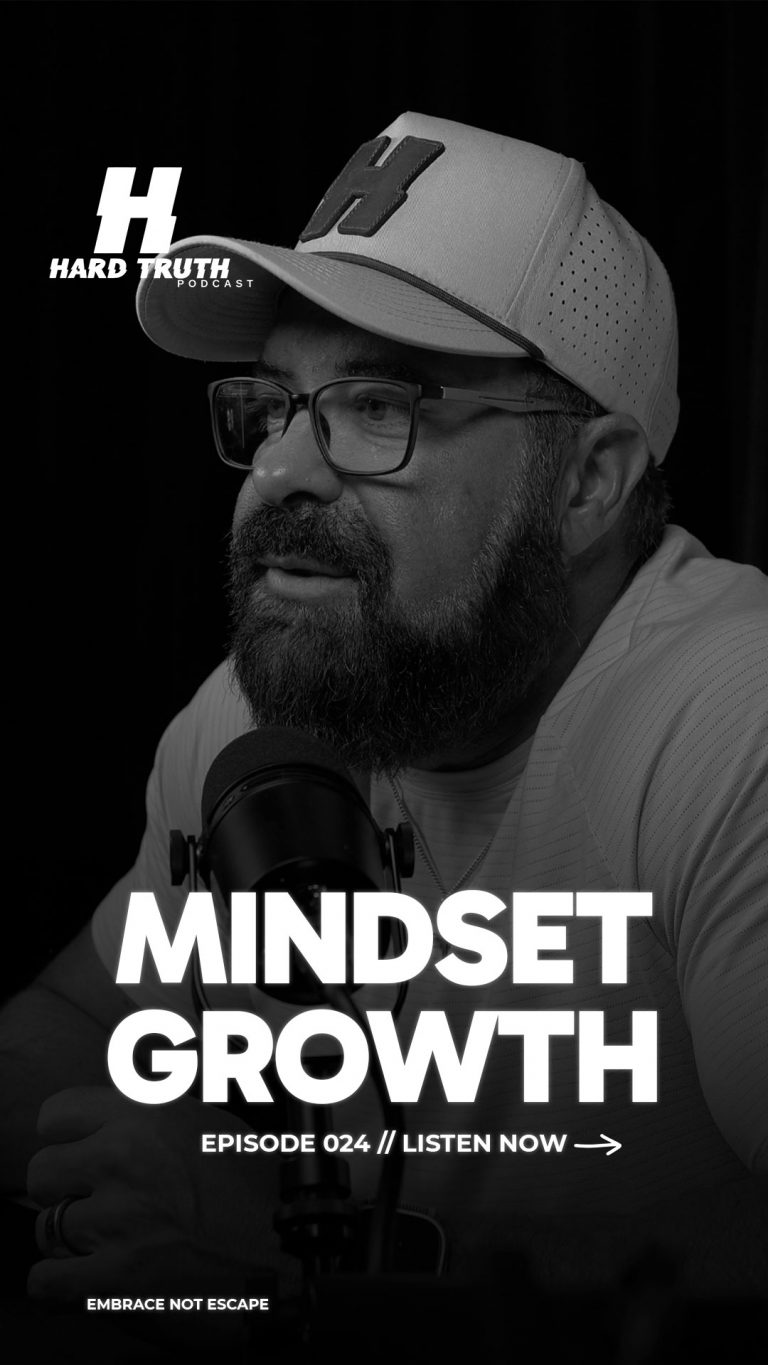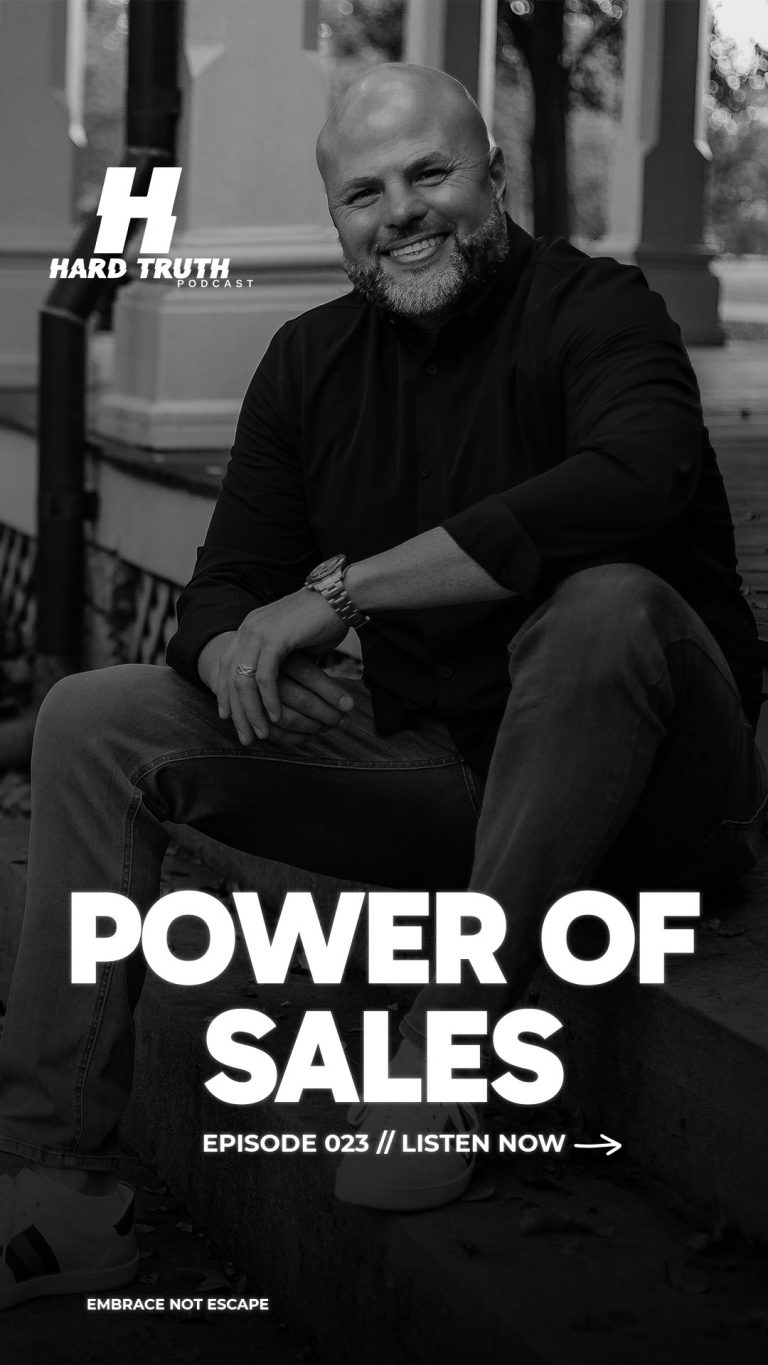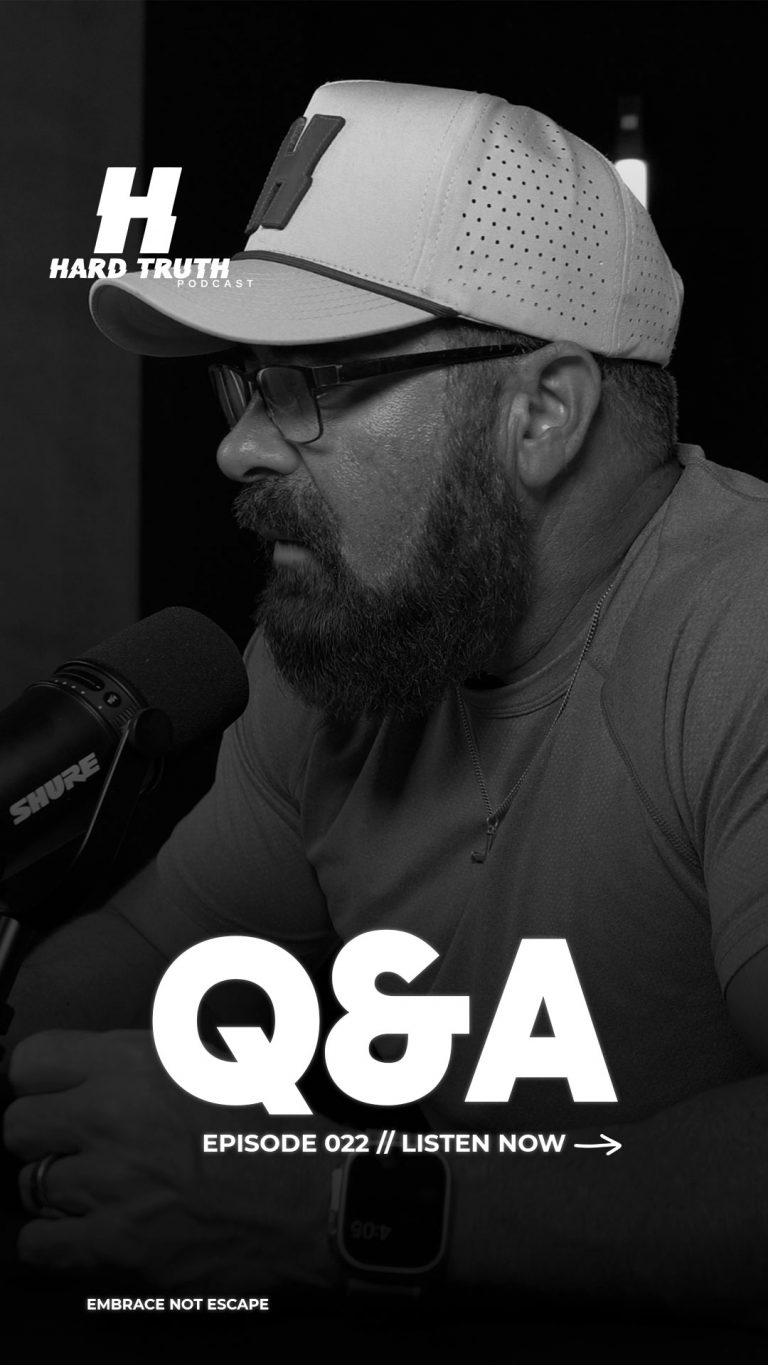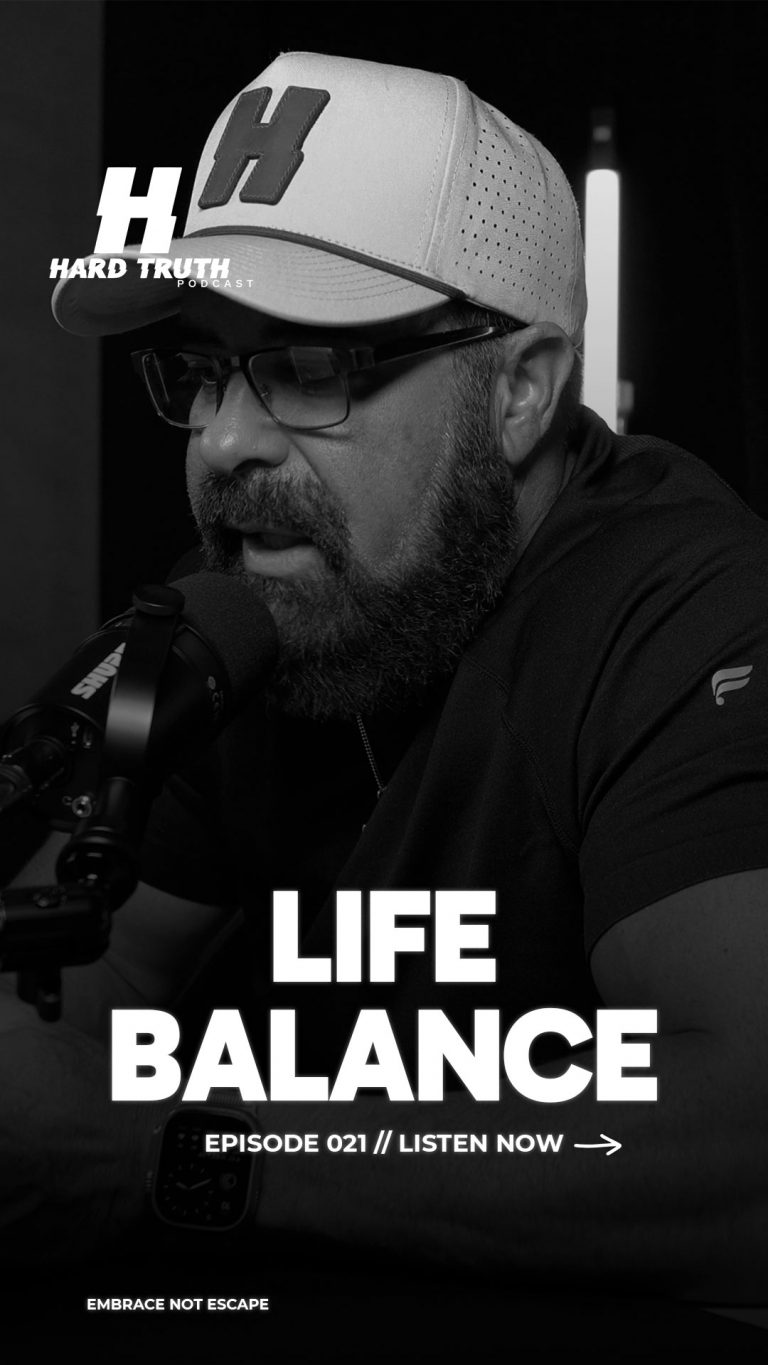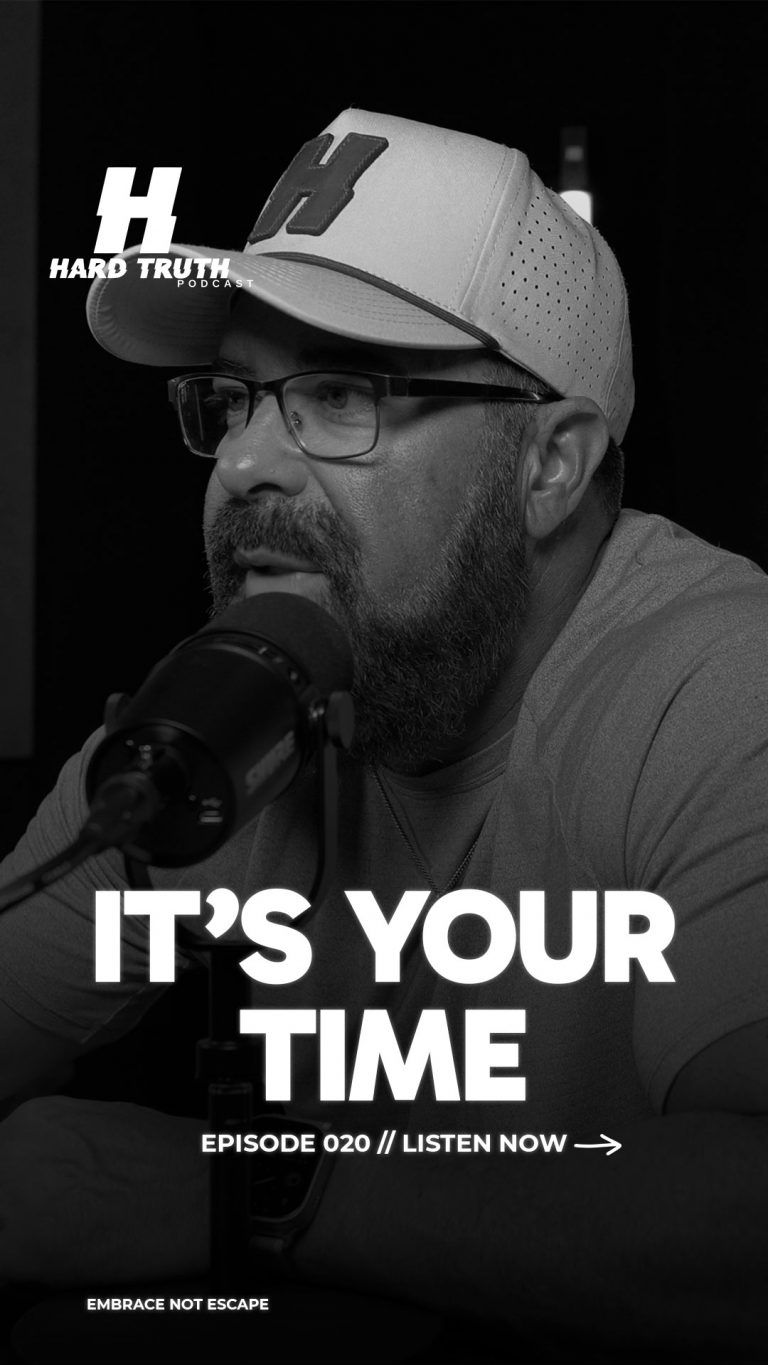Welcome to The Hard Truth Podcast.
My name is Jeremy Fouts, and today we are going to be discussing nutrition and supplementation.
You know, the reason why we need to be focused on good food quality, and what role supplementation can make at filling in those nutritional gaps.
So today, talking about nutrition and supplementation is definitely one of my favorite topics.
As a lot of you may or may not know, I’ve been in the supplement industry for about 25 years, and my upbringing was actually growing up on a farm, row crop farm, my dad grew corn, soybeans, wheat.
We also, though, while those summer crops was growing, in order to make extra income, we would grow cantaloupes, watermelons, squash, broccoli, cauliflower, all the different things.
Also, we grew spinach, mustard greens, kale greens, all these other different types of produce in order for us to sell to earn extra cash.
So I’ve been around farming and supplementation for a long time, and I’ve saw every aspect of it, the goods and the bads.
And today, I wanna talk to you about all the different farming practices, the essential vitamins that we need, and the reason we need supplementation, and why you should choose the right companies that you purchase supplements from.
So today, I’m excited about this.
As I mentioned in my first episode, my story, when I went on to Oklahoma State University after high school, I studied soil sciences and agronomy and engineering.
So we really learned the importance of having a good quality soil in order to produce good quality crops, which it could be a crop of corn, soybeans, or broccoli, or cauliflower.
You know, a lot of people don’t understand the soil is what gives that plant the nutrient in order to grow properly, number one, but also to give your body the nutrients that it needs in order to fill those nutritional gaps that we all have if we don’t choose a good diet.
Now, what I did learn really quickly, and I grew up on a farm, like I said, so I already knew this because my dad was very intelligent.
He also had a agronomy and soil sciences degree from University of Arkansas, so he was not one of those typical farmers with no science, with no background, and no knowledge of what he was doing.
He was very, had a scientific approach, understood every practice that he was practicing on the farm.
And as I went to Oklahoma State, though, I understood real quickly how with all the changes, and this was back in the 90s, and it’s even changing even faster today, of how much farmland every year is being turned in to malls, residential, sidewalks, all these different things because of demand.
You know, you’ve got a farmer that’s grown crops in this area, all of a sudden, he can sell that land for a lot more money than he can produce crops from.
And matter of fact, I was reading a stat this morning, and this is from American Farmland Trust.
They said basically in the next 15 years, we’ll have over 18.4 million acres will be converted into residential, commercial, you know, whatever the situation may be.
That’s the size of South Carolina.
So, I mean, every year we are losing, you know, so many acres that we usually produce crops in that turns into residential commercial.
Now, why is that important?
That’s important because these universities, all these places that are really trying to breed seeds in order to produce crops, they are in almost a tinsy to try to figure out how to produce a seed that not necessarily is going to provide the most nutrient-rich quality food, but it’s how we can take a corn crop that was producing 150 bushels per acre, now it’s producing 250 bushels per acre.
You know, there’s so much to that.
You know, when you talk about the soil itself, there’s over 60 nutrients in the soil.
You know, so for example, I’ll give you back when my great-grandfather used to farm in Muldrow, Oklahoma, he would grow a spinach crop, and then he would wait probably two to three years to grow another spinach crop on that same 40 acres, where today there is no waiting.
There’s a fast process.
So instead of worrying about the 60 nutrients in the soil and of organic matter and everything has replenished, then all we do in commercial farming is we put nitrogen, phosphorus, and potash, just three of the important things that we need to produce a good quality produce or a crop.
So understand, there’s two real reasons here that you need to be understanding and have the education of why it’s important.
Absolutely, it would be best to grow your own garden, but a lot of people are not doing that, but how to pick good nutrient-based foods for your diet every day.
So that’s a little bit of background.
What has happened is the commercial farming, we’ve got to produce more crops because we have less land.
More of our land is being turned in to all these different residential areas, malls, all these different parks, whatever the situation may be.
So it’s not like the United States has said, we’re not just going to want to produce more crops and more nutrient-based crops.
They’re in a need to try to produce more mass crops in order to feed the population that we have today.
Now, I want to share with you what has happened with this.
I’m going to share with you a couple more stats, and that is 90% of the population is suffering from at least one mineral or vitamin deficiency based on their dietary references.
And this is an American population, guys.
92% of the population.
So we have so many people that not only are not providing the right supplementation, not only are not picking the right foods because they’re running to Chick-fil-A, they’re running to McDonald’s.
I mean, how many of you have been in a situation where you’re in the middle of nowhere, you’re on a family vacation, and the only thing to choose is McDonald’s or Sonic or whatever the situation may be?
But think about this.
Little bit over little bit of not choosing the right foods, not supplementing with the right supplements, 92% of American population is suffering from at least one mineral or vitamin deficiency.
Nine out of ten are deficient in potassium.
Seven out of ten are deficient in calcium.
Eight out of ten are deficient in vitamin E.
Fifty percent of Americans are deficient in vitamin A and vitamin C and magnesium.
And then fifty percent or more of the general population is vitamin D deficient regardless of age.
But listen to this.
Over seventy percent of elderly Americans are vitamin D deficient, and ninety percent of Americans of color are vitamin D deficient.
Now, I’m not going to talk about all the different things for all these vitamin deficiencies that you will see, but I will tell you, vitamin D is very crucial.
And my company, Core V, does not have a vitamin D supplement.
I take it every day.
So does my wife, and so does my two boys.
It’s something that’s very important.
But here’s some of the things that it causes.
Fatigue, bone and joint pain, depression, irritability, low testosterone in men.
A lot of people don’t understand, and if you have women listening today, you’re going to be like, man, I’m going straight to the store to get my husband some vitamin D, because it helps with also not just the testosterone, but a lot of people don’t understand vitamin D is the root.
And vitamin D helps DHEA, which helps testosterone, which is women going to help their libido.
So it’s very important for vitamin D, but all of these are important for our day-to-day health.
There are 13 essential vitamins, vitamin A, C, D, E, K, and B vitamins, which is your biotin, folate, and B12.
We need all of these in order to have optimal health on a day-to-day basis, which is going to help us from resisting infections, keeping our nerves healthy, and giving us energy.
So when I see a lot of people, I can look in their eyes, and if they’re drinking Diet Coke, they’re eating French fries, they’re eating cheeseburgers on a daily basis, they don’t look good.
Now, I’m not talking about just from a fat body content.
I’m talking about looking in their eyes, looking at their walk, looking at their step, and this is because they are not putting the right nutrients in their body.
So I encourage every one of you listening today to understand the problem we have here.
Now, absolutely, it would be best if all of us could grow a garden.
You know, grow the squash, grow the okra.
Now, I will say this.
If you grow okra, you might need to hire somebody to pick it.
I’ll never forget the story my dad and my uncle who farmed together.
We grew some okra and it was horrible.
It makes you itch like crazy when you’re picking it.
And one day my dad and my uncle got tired of us complaining about it.
So they went and picked it before long.
They jumped in the Arkansas River and said we’re never growing okra again.
And they plowed it up.
I mean, okra is horrible.
But yes, it would be best in order for you to be able to grow your own garden.
But most people are not going to have time to do that.
They don’t live in a place where they can.
But it’s so important, guys, to be able to get the right foods.
People say, well, I can’t afford organic foods.
Well, I’d figure out something.
Because for someone to say they can’t afford good food qualities, good supplementation of what they put in their body, my comment back to them is you can’t afford not to.
God gave you one body.
You’re going to pay for your health.
You’re either going to pay for it now and have a good quality of health, or you’re going to neglect your health and do McDonald’s because it’s cheaper, you think.
And then you’re going to be trying to buy back your health later in life because you have basically neglected your health.
So understand that we have a soil depletion problem in producing the quality of crops that we need in order to feed our body those nutritional gaps.
So that’s why I’ve been in the nutrition industry for over 25 years.
I believe, though, yes, I believe in supplementation, but I also believe in making good food choices.
I’m not saying supplementation is the fix to everything.
I’m saying you put them both together, making the best food choices that you can make on a daily basis by eating as much organic as you can, by understanding the importance of good fiber in your diet with the broccoli and the cauliflower, the good rich proteins from a grass-fed steak, you know, the venison, if that’s a choice for you, the organic chicken, the good fish with the good omegas, all those things are very important.
But if you need or if you’re looking for supplementation, I want to make sure you understand this important part.
Certifications is the only thing you can really look at as you’re picking a good supplement.
Now, the nutrition industry is on the rise because of the things I just got through mentioning.
You know, people are recognizing the decrease in the quality of our food today.
So there is definitely a large need in the industry for producing supplementation.
Now, FDA will not regulate anything that is all natural from a supplementation standpoint.
So people always call up and say, are your products FDA approved?
No.
No vitamin company has FDA approved products.
But I will tell you this.
There are some good companies, including our company, Corvive, that even though we cannot be FDA approved, we follow all the FDA specifications and regulations, and we work with only manufacturers that have the best certifications to prove that.
So if you go to the vitamin store today and you’re looking for your husband a vitamin D because you want to make him feel better, then I encourage you to make sure that it has a GMP certification on the side.
It’s very important.
Make sure that the company does good C of A’s, is what we call it, which is certificate of analysis, making sure there’s no heavy metals in their products, making sure that they follow all the right practices because those certifications, guys, is a quality control process that helps you build trust with those consumers.
It says, even though we don’t have to spend this money and work with manufacturers that have these special certifications, you know, just for example, like Corvive, we have a product that’s NSF certified, our hydrate product.
It’s a very expensive process, but that’s why we’re able to sell to professional baseball teams and do the things that we’re able to do is because they want to work with the best.
But make sure when you’re choosing, you know, good vitamins, good supplementation, you know, choose only the ones that have spent the money and the time on making sure they have all the certifications.
There’s so much, you know, issues with all the different, you know, ingredients that go into the products.
Now, one thing that we are proud of here at Corvive, we only use USA ingredients.
That’s something that’s important for me.
That’s something that is important for the values of our company.
And that’s something that gives us confidence to know where our ingredients come from.
We can go to the farm.
We can see where they’re produced from.
And that’s something that’s very, very important.
So understand, guys, you don’t want to find anything with a lot of heavy metals.
You know, we’re about to, at Corvive, doing some update changes, and we’re about to put all of our C of A’s on our supplements panel when you go to the website.
That way you can see the certificate of analysis.
You can see, you know, that it don’t have no metals.
You can see all the things that it needs to have.
So also another thing that I would really encourage everyone is look for companies that spend the money on trademarked or patented ingredients.
And what that really means is like, for example, our Corbolic has Tiacrine.
The Tiacrine is a trademarked patented ingredient.
So the companies do third-party testing to provide evidence studies, double-blind studies of the potency of that ingredient.
Same way within our energy product that we have.
We have a patented ingredient called Carnison.
You can Google Carnison and see all the different studies and the performance that it gives your athlete.
Or if you’re a soccer, stay-at-home mom, it gives you performance extra in the gym.
But find the companies that are willing to put the best ingredients in their products.
You can find a cheap protein, but you can’t find a protein like ours that have grass-fed whey and collagen, and it comes in a to-go package.
When it comes to your body, whether it’s supplementation or whether it’s choosing your family dinner, I would encourage you guys to not try to find the cheapest.
You can save money on other things, your clothes.
Buy the cheaper shoes, buy the cheaper jeans, but when it comes to fueling your body, you do not want to try to find something to save money.
Trust me on that.
It’s amazing to me that people that will probably give negative comments on that, but they have $1,000 iPhone, they have Netflix, they have Hulu, they have all these different things.
When it comes right down to it, the outward appearance of our body is not near as important, and I’m talking about the clothes we wear, as our insides.
I don’t care if you don’t buy from my company.
Just find a company that meets all the certifications that I just mentioned, and understand that you want to find a company that does all the testing like we do, and there’s other ones out there that’s good like this, and make sure you’re not trying to find the cheapest.
You want the best because it’s about to go into your body.
So guys, today, I hope this podcast gives you a little bit of knowledge of number one, the need for good nutrition and good supplementation.
92% of Americans today are suffering from at least one mineral or vitamin deficiency.
You know, there’s new diseases every year that’s coming out in the medical field, and they really don’t know what it’s coming from.
And my opinion is, it’s pretty simple.
It’s because we are not giving our body the fuel that it needs in order to be able to produce like it needs to produce.
So take your body serious.
Understand that it’s worth investing in your health.
If you don’t do it now, you’re going to do it later and not have near as good a quality of life.
Thank you guys for joining this podcast.
Share with a friend or family member that you think can benefit from this podcast.
Follow me on social media.
Also, jeremyfouts.com.
Thank you for joining.

